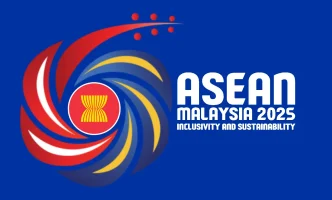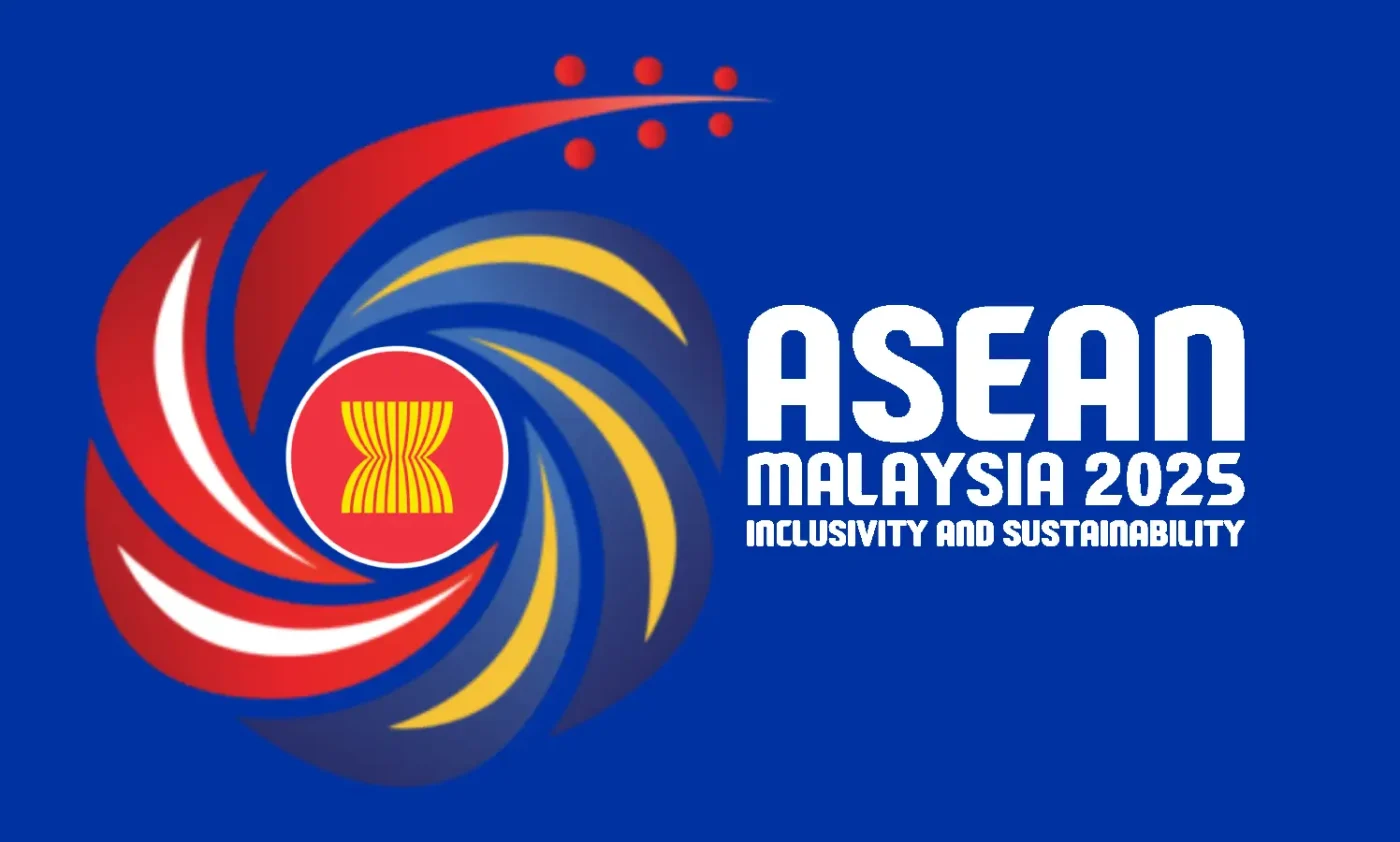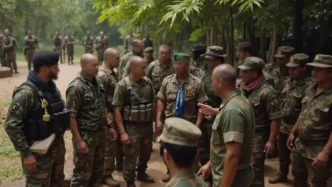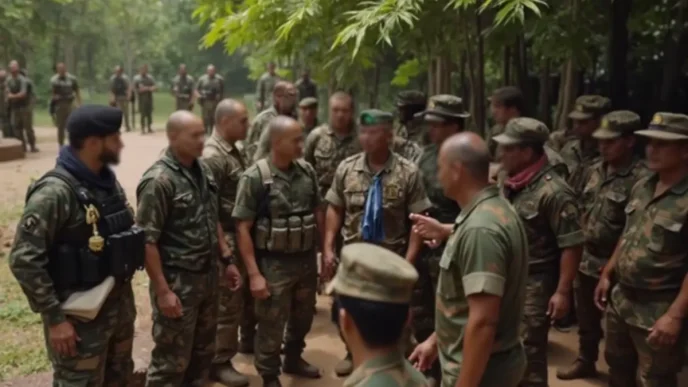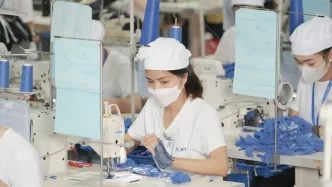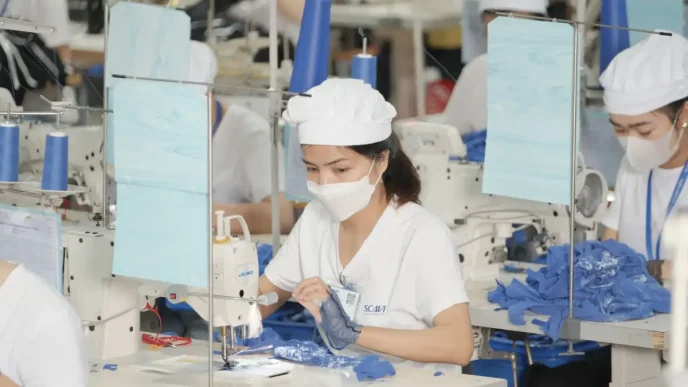In a significant gathering of regional leaders, ASEAN foreign ministers convened in Kuala Lumpur on July 8, 2025, to address pressing issues of human rights and nuclear disarmament. At the 58th ASEAN Foreign Ministers’ Meeting (AMM-58), Vietnam’s Deputy Prime Minister and Minister of Foreign Affairs, Bùi Thanh Sơn, underscored the need for a unified approach to human rights challenges while reaffirming the bloc’s commitment to a nuclear weapon-free Southeast Asia. The discussions, held amidst growing global security concerns, highlighted ASEAN’s evolving role in shaping regional stability and cooperation.
Human Rights at the Forefront of ASEAN’s Agenda
The dialogue with the ASEAN Intergovernmental Commission on Human Rights (AICHR) emerged as a cornerstone of the AMM-58 proceedings. Deputy Prime Minister Bùi Thanh Sơn emphasized the complexity of promoting human rights, calling for a comprehensive strategy that integrates multiple sectors and enhances coordination between AICHR and specialized agencies. He praised the commission’s contributions over the past 15 years, expressing optimism about its role in realizing the ASEAN Community Vision 2045—a blueprint for a more integrated and resilient regional bloc.
Sơn also drew attention to emerging challenges that threaten human rights across the region, including persistent poverty, harsh labor conditions, and the ethical implications of rapid technological advancements. His remarks reflected a broader concern among ASEAN leaders about balancing economic progress with social equity. To address niche but critical issues, Sơn announced that Vietnam will host an AICHR workshop on the rights of seafarers later in 2025, aiming to raise awareness and foster cooperation on labor protections for this often-overlooked group.
ASEAN foreign ministers echoed Sơn’s sentiments, commending AICHR’s efforts to embed human rights principles across the bloc’s cooperative frameworks. They highlighted initiatives targeting vulnerable populations, such as women, children, and persons with disabilities, as well as tackling modern challenges like environmental degradation, climate change, mental health, transnational crime, cybersecurity, and the governance of artificial intelligence. The adoption of AICHR’s Work Plan for 2026–2030 marked a pivotal step, with ministers urging the commission to align its efforts with long-term regional goals while adopting innovative and adaptive strategies to protect human rights in a rapidly changing world.
The focus on human rights at AMM-58 signals ASEAN’s intent to position itself as a people-centered community. However, translating these commitments into tangible outcomes remains a formidable task. Issues like labor exploitation and digital privacy are deeply intertwined with economic policies and national interests, often leading to uneven implementation across member states. Analysts suggest that while workshops and work plans are vital, ASEAN must also establish enforceable mechanisms to hold governments accountable for human rights commitments—a challenge that could define the bloc’s credibility in the coming decades.
Reaffirming a Nuclear Weapon-Free Southeast Asia
Parallel to the human rights dialogue, the Southeast Asia Nuclear Weapon-Free Zone (SEANWFZ) Commission meeting underscored ASEAN’s enduring commitment to regional security through disarmament. The SEANWFZ Treaty, now in its 30th year since inception in 1995, remains a bedrock of the region’s security architecture. Amid escalating global nuclear tensions, ASEAN foreign ministers reiterated the treaty’s relevance, emphasizing its role in safeguarding Southeast Asia from nuclear threats.
Deputy Prime Minister Sơn described the treaty as a vital testament to ASEAN’s shared vision for a nuclear-free region. He highlighted its significance not only for regional stability but also as a contribution to global disarmament efforts. Sơn’s remarks came as the ministers reviewed progress on the SEANWFZ Plan of Action for 2023–2027, which includes strengthening ties with the International Atomic Energy Agency (IAEA) to enhance nuclear safety, security, and the sustainable use of nuclear energy for peaceful purposes.
A key focus of the meeting was elevating the treaty’s global profile. Ministers endorsed a draft resolution on SEANWFZ to be submitted to the 80th session of the United Nations General Assembly, a move aimed at garnering wider international support. They also agreed to intensify consultations with nuclear-weapon states, urging them to sign the SEANWFZ protocol—a legal commitment to respect the region’s nuclear-free status. While progress has been slow on this front, with major powers often citing strategic interests as barriers, ASEAN’s persistence reflects a determination to shape global norms on disarmament.
In a notable development, the ministers welcomed Timor-Leste’s impending accession to the SEANWFZ Treaty, with formal procedures expected to conclude at the 47th ASEAN Summit in October 2025. Sơn confirmed that Vietnam is finalizing internal processes to support Timor-Leste’s inclusion, a step that reinforces ASEAN’s inclusivity and collective stance against nuclear proliferation. He also proposed greater internal coordination within ASEAN to build a unified position in dialogues with nuclear-weapon states, a strategy that could strengthen the bloc’s negotiating power.
Sơn further revealed Vietnam’s upcoming role as president of the 11th Review Conference of the Treaty on the Non-Proliferation of Nuclear Weapons (NPT) in 2026. He expressed hope for strong support from ASEAN members, positioning Vietnam as a key player in global non-proliferation efforts. This role could amplify Southeast Asia’s voice on the world stage, potentially bridging regional and international disarmament agendas.
Broader Implications for Regional Stability
The dual focus on human rights and nuclear disarmament at AMM-58 reflects ASEAN’s multifaceted approach to regional challenges. On one hand, the emphasis on human rights underscores a commitment to social progress and equity, aligning with the bloc’s vision of a people-centered community. On the other hand, the reaffirmation of SEANWFZ highlights a pragmatic concern for security in a geopolitically volatile region, where external powers and internal conflicts often intersect.
However, the path forward is fraught with complexities. Human rights initiatives, while laudable, often clash with national sovereignty concerns within ASEAN, where consensus-driven decision-making can dilute bold reforms. For instance, addressing labor conditions or cybersecurity requires harmonizing diverse legal frameworks—a process that could take years. Similarly, the SEANWFZ Treaty, while symbolically powerful, faces practical hurdles in engaging nuclear-weapon states, whose strategic priorities may not align with ASEAN’s disarmament goals.
Experts argue that ASEAN’s strength lies in its ability to mediate between competing interests, fostering dialogue even when immediate results are elusive. The bloc’s persistence with SEANWFZ consultations, for example, demonstrates a long-term vision that prioritizes incremental progress over quick wins. Likewise, initiatives like Vietnam’s seafarers’ rights workshop signal an intent to address specific, actionable issues within the broader human rights framework—a strategy that could build momentum for wider reforms.
Looking Ahead to AMM-58 and Beyond
The formal opening of AMM-58 on July 9 at the Kuala Lumpur Convention Centre marked the continuation of these critical discussions. Deputy Prime Minister Sơn, alongside other ASEAN foreign ministers, participated in plenary and retreat sessions, as well as a signing ceremony for new partners joining the Treaty of Amity and Cooperation in Southeast Asia (TAC)—a foundational agreement promoting peaceful coexistence in the region.
As ASEAN navigates the intricacies of human rights and nuclear security, the outcomes of AMM-58 could set the tone for the bloc’s priorities in the coming years. With initiatives like the AICHR Work Plan and Timor-Leste’s SEANWFZ accession on the horizon, the region is poised to deepen its integration and global influence. Yet, the true test will lie in translating these commitments into measurable impact—whether through stronger human rights protections or a more secure, nuclear-free Southeast Asia.
For now, the Kuala Lumpur meetings serve as a reminder of ASEAN’s potential to shape a resilient and dynamic future. As Deputy Prime Minister Sơn and his counterparts chart this course, the question remains: can ASEAN balance its ambitious vision with the practical realities of a diverse and often divided region?

